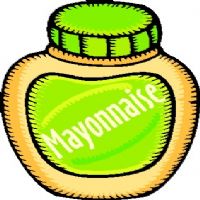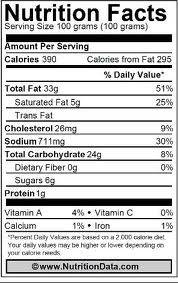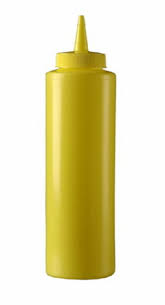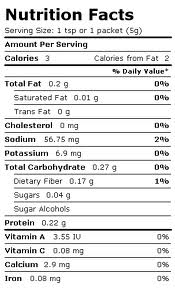Note:
1. Continuar con las lecciones virtuales. Semana 9 junio 18 de 2020 lección 13,
Comparativos, superlativos y positivos en Inglés
13A.Adjetivos Calificativos y Sustantivos en Inglés
https://www.englishcoursecursoingles.com/
2. Se continua trabajando con los libros "ENGLISH PLEASE" 10 , grado décimo el cual pueden descargar en el siguiente enlace:
https://d3rhaqd7pe5pkw.cloudfront.net/English%20Please/Student%20Book%2010%C2%B0/ENGLISH_PLEASE_10_STUDENT_BOOK.pdf
3. En el enlace https://aprende.colombiaaprende.edu.co/sites/default/files/naspublic/colombiabilingue/ep_sbook/student_ep1.pdf Audios mp3 (english please fast track EP2 ). Escuchar el audio _____ ( english please
level 2 Track _____ )
TOPIC AND GOALS
Topic: . Shopping, individual
. Spending, goverment spending
Module 2 Unit 1 lesson 1 (pág 48)
. Spending, goverment spending
Module 2 Unit 1 lesson 1 (pág 48)
languaje focus: . Using more and less
Goal: . Speaking: prioritising and giving reasons
. Writing: expressing opinions on spending.
MOTIVATION (WARM UP)
1. Read the definition of shopaholic in the box. Are the people below shopaholics? how about you?.
2. Look at the numbers in the boxe. Write the numbers in english.
3. Listen and repeat the numbers in Exercise 2. (remember without see the audio).
https://aprende.colombiaaprende.edu.co/sites/default/files/naspublic/colombiabilingue/ep_sbook/student_ep1.pdf Audios mp3 (english please fast track EP2 ). Escuchar el audio 15 ( english pleaselevel 2 Track 15 ).
4. Work with your family. Follow the instructions to play a game with big numbers.
5. Can you name all of these products? Match the names of the products with the pictures.
6. Put the products in exercise 5 in the correct category.




Goal: . Speaking: prioritising and giving reasons
. Writing: expressing opinions on spending.
MOTIVATION (WARM UP)
1. Read the definition of shopaholic in the box. Are the people below shopaholics? how about you?.
2. Look at the numbers in the boxe. Write the numbers in english.
3. Listen and repeat the numbers in Exercise 2. (remember without see the audio).
https://aprende.colombiaaprende.edu.co/sites/default/files/naspublic/colombiabilingue/ep_sbook/student_ep1.pdf Audios mp3 (english please fast track EP2 ). Escuchar el audio 15 ( english pleaselevel 2 Track 15 ).
4. Work with your family. Follow the instructions to play a game with big numbers.
5. Can you name all of these products? Match the names of the products with the pictures.
6. Put the products in exercise 5 in the correct category.
LISTENING
7. Listen to the descriptions. Which products from exercise 5 do the speakers describe?https://aprende.colombiaaprende.edu.co/sites/default/files/naspublic/colombiabilingue/ep_sbook/student_ep1.pdf Audios mp3 (english please fast track EP2 ). Escuchar el audio 16 ( english pleaselevel 2 Track 16 ).
8. Listen again and make notes about the products. Describe the productss using your notes. (remember without see the audio).
9. Look at the pictures. What do you think your country spends most money on? put the picture in order from 1-4
READING
9. Read the text. Which of the things in exercise 9 does it mention?.
Check unknown vocabulary.
spend money: gastar dinero.
research: investigation
foreign aid: ayuda al extranjero.
tax: impuestos
citizens: ciudadanos.
oil: petróleo.
floods: inunddaciones.
12. Complete the sentences with more or less and the nouns in the vocabulary.
https://dictionary.cambridge.org/es/gramatica/gramatica-britanica/comparison-nouns-more-money-the-most-points
https://dictionary.cambridge.org/es/gramatica/gramatica-britanica/comparison-nouns-more-money-the-most-points
Comparison: nouns (more money, the most points)
More, less and fewer
We can use more, less and fewer with noun phrases to create comparisons which are similar to the comparative forms of adjectives and adverbs:
There was more snow this year than last year.
She has more problems than most people.
You should eat less junk food and start to take better care of your health.
There are fewer birds in the countryside now than there were 30 years ago.
Traditionally, we use less with uncountable nouns and fewer with plural countable nouns. Nowadays, many people use less with plural countable nouns. Some people consider this to be incorrect, and prefer to use fewer:
I think the room would look better with less furniture. (less + singular uncountable noun)
There were fewer cars on the roads twenty years ago. (fewer + plural countable noun; traditional correct form)
Less kids take music lessons now than before. (less + plural countable noun; considered incorrect by some people)
Warning:
We use more + noun phrase, not much + noun phrase, to make a comparison:
Footballers earn more money than other sportsmen.
Not: … much money than other sportsmen
More and more, less and less, fewer and fewer
We can use more and more, less and less and fewer and fewer in noun phrases to refer to things which increase or decrease over time:
There are more and more low-quality reality shows on TV.
I seem to have less and less time to myself these days.
She visited her family on fewer and fewer occasions, till soon she stopped seeing them altogether.
Most, least and fewest
We can use most, least and fewest with noun phrases to create comparisons which are similar to the superlative forms of adjectives and adverbs. It is more common to use the before most, least and fewest, but we can also leave it out:
The points are added up, and the team with the most points wins.
Who got most votes in the election?
The room that has the least furniture would be best for dancing.
The class with the fewest students was always Miss Murray’s philosophy seminar.
Traditionally, we use least with singular uncountable nouns and fewest with plural countable nouns. Nowadays, many people use least with plural countable nouns. Some people consider this to be incorrect, and prefer to use fewest:
Which horse eats the least food? That’s the one I’ll buy! (least + singular uncountable noun)
Of all the models we tested, the B226X had the fewest faults. (fewest + plural countable noun; traditional correct form)
Of the three cities, I’d say Limerick gets the least tourists. (least + plural countable noun; considered incorrect by some people).
COMPARISONS
I. COMPARE THE NEXT ARTICLES:




- Mayonnaise has saturated fat than mustard
- Mustard has calories than mayonnaise
- Mustard has cholesterol than mayonnaise
- Mayonnaise has sodium than mustard
- Mustard has carbohydrates than mayonnaise
- Mayonnaise has dietary fiber than mustard
- Mustard has sugar than mayonnaise
- Mustard has grams of proteins than mayonnaise
- Mayonnaise has calcium than mustard
- Mustard has iron than mayonnaise











No hay comentarios.:
Publicar un comentario